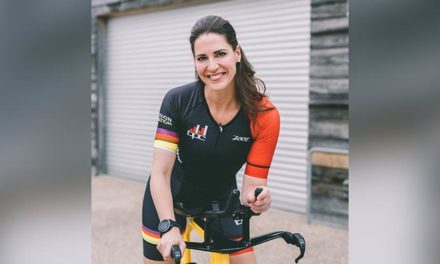Here’s what a gastroenterologist suggests
By Leonard Baidoo, M.D.
If you struggle with irritable bowel syndrome (IBS), the holiday season can be a challenge. As a gastroenterologist, I help patients manage symptoms so they don’t miss out on holiday activities.
IBS is a common chronic disorder that impacts the gastrointestinal system. It is frustrating but non-fatal. Most patients suffer from symptoms including cramps, abdominal pain, bloating, and gas, as well as diarrhea, constipation, or both.
For the most part, IBS symptoms are not severe, and most people can keep them under control through dietary modifications, exercise, medication, and stress management.
During the holidays, busy schedules, stress, and unhealthy trigger foods can conspire to make symptoms worse.
Here’s the advice I give patients at this time of the year.
Even if you don’t have IBS, eating healthy and managing stress can help you avoid digestive issues that are common over the holidays.
Stick to a healthy diet… but still enjoy yourself!
If you’re getting ready for a holiday meal, plan ahead so you can enjoy foods you love but avoid IBS flare-ups.
If you know your trigger foods, avoid them. Common culprits are alcohol, caffeine, fried foods, fatty foods, and foods that cause gas, like broccoli or beans.
Eat a snack before a big meal so you aren’t starving and tempted to overeat. Eating too much all at once can spark symptoms, even if you eat healthy foods.
Finally, if you’re going to a social gathering, bring a banana, crackers, or other IBS-friendly food. Unfamiliar settings can come with unfamiliar foods, and bringing your own means you’ll have something you can eat that won’t cause a flare-up.
Drink plenty of water.
Staying hydrated helps IBS because water supports digestion and helps flush toxins from the body. Drink as much fluids as possible, preferably water.
If you’re on the go shopping, decorating, socializing, etc., it can be harder to drink enough water. Bring a reusable water bottle and drink before you start feeling thirsty.
Find ways to manage stress.
A few minutes of deep breathing or meditation can give you a much-needed break, and exercise like walking is easy to incorporate into your day.
Try to remember that not everything needs to be perfect. You can say “no” to some invitations or delegate responsibilities to family members.
If you find you’re struggling with stress during the holidays or any other time, talk to your healthcare team about your mental healthcare needs.
Ask your doctor about medication.
For some patients, lifestyle changes alone don’t completely control IBS. Your gastroenterologist can help you find the right medication based on your specific symptoms.
If you mostly deal with cramping, a muscle relaxant can help. Antidiarrheals and/or laxatives are useful for many patients, depending on whether they struggle with diarrhea or constipation.
Your doctor can also prescribe antibiotics or low-dose antidepressants. Antibiotics can help with digestion by targeting bacteria in the small and large intestines, while antidepressants may make your gastrointestinal tract less reactive to dietary and emotional IBS triggers.
Dr. Leonard Baidoo is a world-renowned gastroenterologist who sees patients at Regional One Health. To learn more, visit regionalonehealth.org/gastroenterology-services.
Here’s what a gastroenterologist suggests







